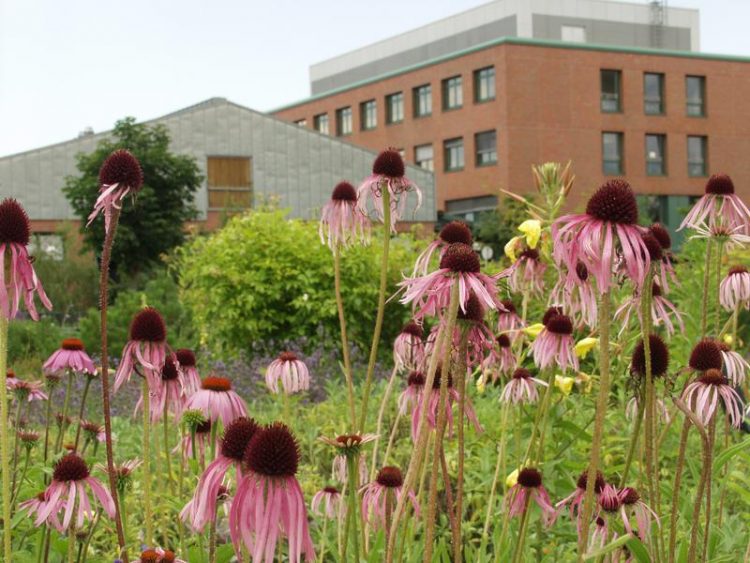Research project on the safe use of botanicals – Final EU-Project conference in Vienna

Properties and safety of various botanicals were investigated. Photo: Remigius Chizzola / Vetmeduni Vienna
A consortium of international research groups worked with botanists from the University of Veterinary Medicine, Vienna to investigate whether botanicals available as drops, capsules, lozenges, tablets and pills, for example, truly deliver on what they promise. The PlantLIBRA research project was kicked off in 2010 and ends in May this year. The wrap-up event will be held from May 12 to 14 in Vienna.
The 25 nations involved in the “PlantLIBRA” research project all pursued the same goal: to record the benefits and risks of botanicals and test the quality of the products available on the market. The experts involved also compiled a database that will make it easier for the European Food Safety Authority (EFSA) and other national authorities to assess botanicals.
Testing potency and toxicity
Botanicals, available as capsules, lozenges, tablets, pills and other similar dosage forms, are legally defined as foodstuffs and therefore subject to less stringent regulations than pharmaceuticals. Whether they offer any benefits, or may even pose risks, to consumers is the subject of the EU project that investigated a range of selected samples.
“Whether a product actually contains the plant advertised on the package has not been tested in many cases. And it often takes a liability suit before we find out whether the active ingredients in a botanical product are effective or perhaps even poisonous,” reports workpackage leader and Professor Emeritus at the Vetmeduni Vienna, Chlodwig Franz.“ The goal of this EU project was to shed light on this grey area.”
Methods developed to test products
Botanists from the Institute of Animal Nutrition and Functional Plant Compounds developed methods for investigating the quality of the products. They also established DNA analysis techniques that allow the exact identity of the plants used.
European products exceeded expectations
The researchers examined different products from all over Europe that contained passion flower, devil’s claw, melissa, chamomile, valerian, calendula and ribwort. According to researcher Silvia Sponza: “All the European products we examined, including teas, pills, drops, powders and ointments, did in fact contain what was listed on the packaging. And the quality of the active ingredients was even on par with the quality standards that apply to pharmaceuticals.”
The scientists also drew up a list of analysis laboratories in Europe, an important resource for the industry. This will make it much easier for botanicals manufacturers to select the right lab to run analyses on their products.
Interviews with experts
The PlantLIBRA final conference will be held in Vienna from May 12 to 14. Study research partners and representatives from the industry will be in attendance. Professor Chlodwig Franz and his colleagues will be available during the event at the Hotel Stefanie (Taborstraße 12, 1020 Vienna) for interviews.
Contact:
Prof. Chlodwig Franz
chlodwig.franz@vemteduni.ac.at
T +43 664 1608363
Location of the Conference:
Hotel Stefanie
Taborstraße 12
1020 Wien
Website: http://www.schick-hotels.com/en/restaurant-stafanie/celebration-vienna-stefanie.html
Programm der Konferenz: https://plantlibra2014.icc.or.at/programme
Released by:
Susanna Kautschitsch
Wissenschaftskommunikation / Public Relations
susanna.kautschitsch@vemteduni.ac.at
T +43 1 25077 1153
About the University of Veterinary Medicine, Vienna
The University of Veterinary Medicine, Vienna in Austria is one of the leading academic and research institutions in the field of Veterinary Sciences in Europe. About 1,200 employees and 2,300 students work on the campus in the north of Vienna which also houses five university clinics and various research sites. Outside of Vienna the university operates Teaching and Research Farms. http://www.vetmeduni.ac.at
http://www.vetmeduni.ac.at/en/infoservice/presseinformation/press-releases-2014/…
Media Contact
All latest news from the category: Event News
Newest articles

Silicon Carbide Innovation Alliance to drive industrial-scale semiconductor work
Known for its ability to withstand extreme environments and high voltages, silicon carbide (SiC) is a semiconducting material made up of silicon and carbon atoms arranged into crystals that is…

New SPECT/CT technique shows impressive biomarker identification
…offers increased access for prostate cancer patients. A novel SPECT/CT acquisition method can accurately detect radiopharmaceutical biodistribution in a convenient manner for prostate cancer patients, opening the door for more…

How 3D printers can give robots a soft touch
Soft skin coverings and touch sensors have emerged as a promising feature for robots that are both safer and more intuitive for human interaction, but they are expensive and difficult…





















